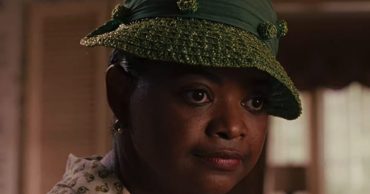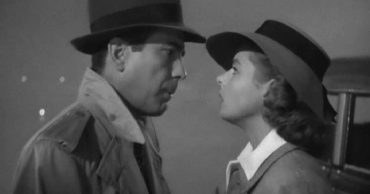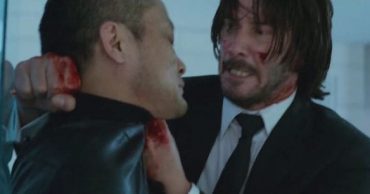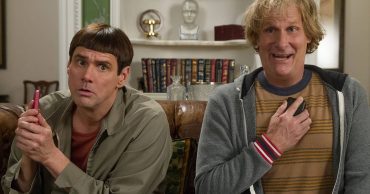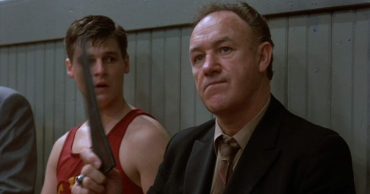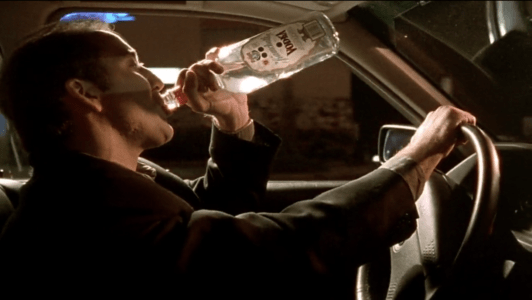
The depiction of alcohol in the movies has always been one of two tropes: glamorized or realistic. You tend to find more of the former and a bit less of the latter, but there have certainly been some incredible films over the years that depict the turmoil of alcoholism. Having a drink can in fact be glamorous, and having a few can be incredible fun at times. But blacking out and feeling ejected from the world the next day is the sad reality for many people who fall under liquor’s spellbinding allure. That is where this countdown is concerned, and none of these movies go a step further and tackle the horrors of illegal drug addiction. Because more often than not, it’s the completely legal perils of alcohol that lead people to the gutter–and there have been some bold and audacious filmmakers that have depicted this reality of drinking. Here are the top 5 films that depict alcoholism.
Leaving Las Vegas (1995)
Nicolas Cage is currently winning rave reviews and notices for his performance in Pig (2021), but his career best role is also coincidentally the movie that earned him a Best Actor Oscar, Leaving Las Vegas (1995). From beginning to end, this is also the most harrowing depiction of alcohol addiction ever committed to celluloid. Cage plays a character named Ben, who is an alcoholic that has recently lost his family either by accidental death or separation (the film never says). At this time, he also loses his lucrative job as a Hollywood screenwriter, and decides to take his severance pay, sell his house, and move to a seedy motel in downtown Las Vegas. His only goal in doing this, as he says, is to literally drink himself to death in a matter of weeks. The equally amazing Elisabeth Shue plays Sera, a Las Vegas Strip sex worker who meets Ben and develops a bond and intense romantic relationship with him. The film depicts their brief relationship and the ensuing struggles between the two. Ben is still 100% adamant that he will go through with drinking himself to death, and Sera accepts this unconditionally at first, but painfully tries to persuade him to seek help once she falls in love with him. This movie takes the number 1 spot because Ben’s alcohol use in the film is like watching the Dante’s Inferno of death-by-suicide with alcohol. No human being could feasibly drink as much as he does in the movie, unless they were also dedicated to committing slow suicide by liquor bottle. Some people like to muse that Las Vegas is a place where good souls go to die; the filmmaking approach by director Mike Figgis seeks to honor this quip. But the movie also shows a brief moment of brightness in the lives of two characters who are used to the lows seen throughout life a lot more than they are used to the highs.
The Lost Weekend (1945)
The Lost Weekend was one of the first films in Hollywood that portrayed the life of an alcoholic. Directed by the legendary Billy Wilder and starring Ray Milland, also a Best Actor Oscar winner, as Don, an alcoholic writer in NYC, the film depicts a gritty realism not common for 1940s Hollywood. Don goes through the entire film stealing and manipulating people around him in order to secretly drink and hope they won’t discover that he is drunk or, to pawn their belongings to come up with money for more booze when he is broke–which is all the time. Many people who have been through alcoholism and survived can attest to this desperate, uncharacteristic behavior, and Wilder does a perfect job of depicting the lows in which alcoholics will stoop to satisfy the cravings.
Ironweed (1987)
By 1987, Jack Nicholson and Meryl Streep had proved themselves to be two of the finest actors of late-20th century American cinema, and a little-seen film like Ironweed is testament to that popular opinion. In the film, directed by acclaimed South American filmmaker Hector Babenco, the two mega-stars de-glam themselves to play two homeless alcoholics in Albany, NY during the height of the Great Depression. Both characters were formerly prestigious within their communities, but the decimation of their respective careers combined with their overindulgence in liquor place them where they are when the film begins. This movie’s depiction of alcohol is not harrowing as much as it is more concerned with showing psychological co-dependence built around drinking. Both characters could likely pull themselves together if it weren’t for the shackles to the bottle. Alcohol has consistently ruined many relationships in the past, and we begin to see that it’s drinking and not so much the economic decline of the country that keeps them sleeping in the weeds.
Clean and Sober (1988)
Another little-seen film from the 1980s about alcoholism was Clean and Sober, which has one of Michael Keaton’s all-time best performances. In the film, Keaton plays a successful real estate agent named Daryl that happens to be heavily-addicted to cocaine. After witnessing a one-night stand overdose on the drug, and losing his lucrative job, Daryl checks into a rehabilitation center and begins to understand his addiction. This film is great based on Keaton’s performance, but also in how it depicts alcohol as a “fallback” drug that many hardcore drug addicts learn to settle for if preferred drugs are out-of-reach.
The Shining (1980)
By far the most unique and admittedly odd selection for this list, The Shining is actually a great parable for the horrors of alcoholism. Again, Jack Nicholson is outstanding as Jack Torrance, and long before he and his family arrive at the Overlook Hotel, Kubrick frames his character as a non-remorseful alcoholic; an alcoholic that has successfully managed to quit–but they are not happy about it at all. As we all know, Kubrick took a hatchet to Stephen King’s equally brilliant novel, but in suggesting that dark spirits give Jack alcohol in the Overlook before he unleashes the monster within himself, this makes for a superb horror film about alcoholism.
https://www.youtube.com/watch?v=S014oGZiSdIPigPig
 Follow Us
Follow Us
